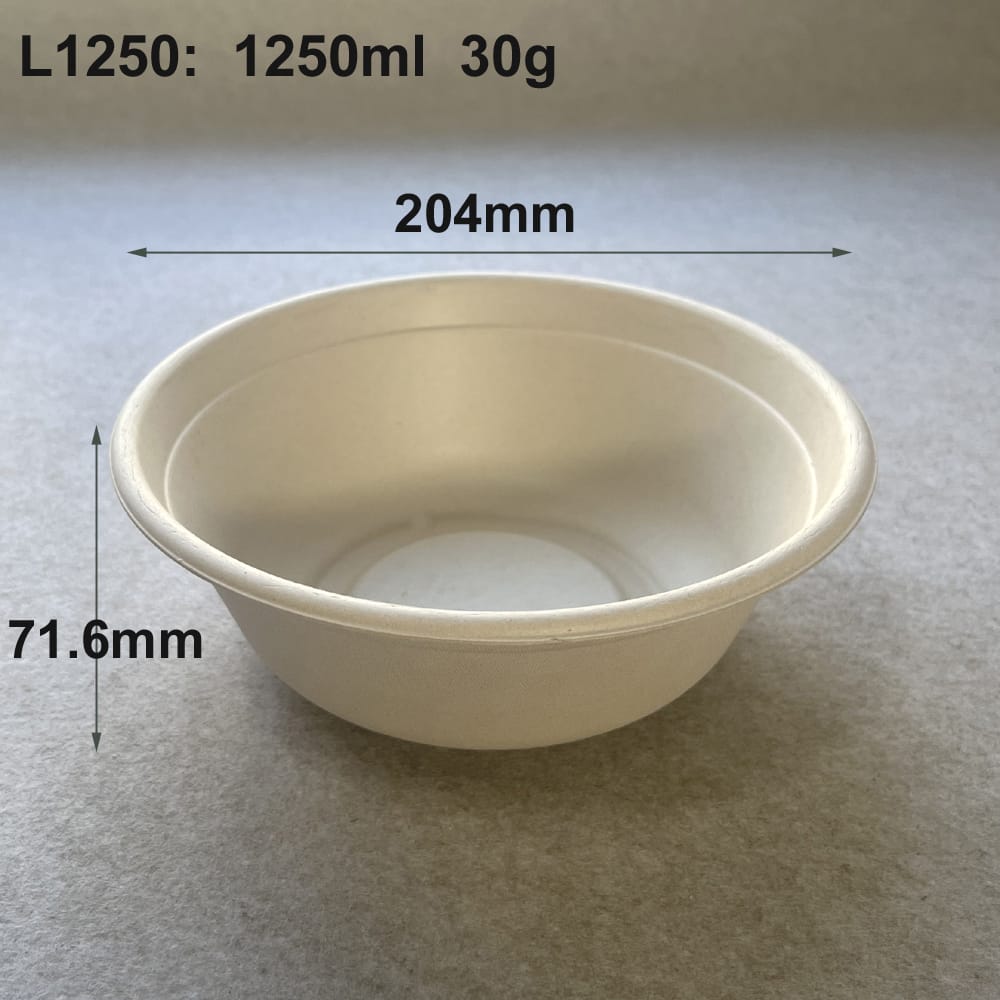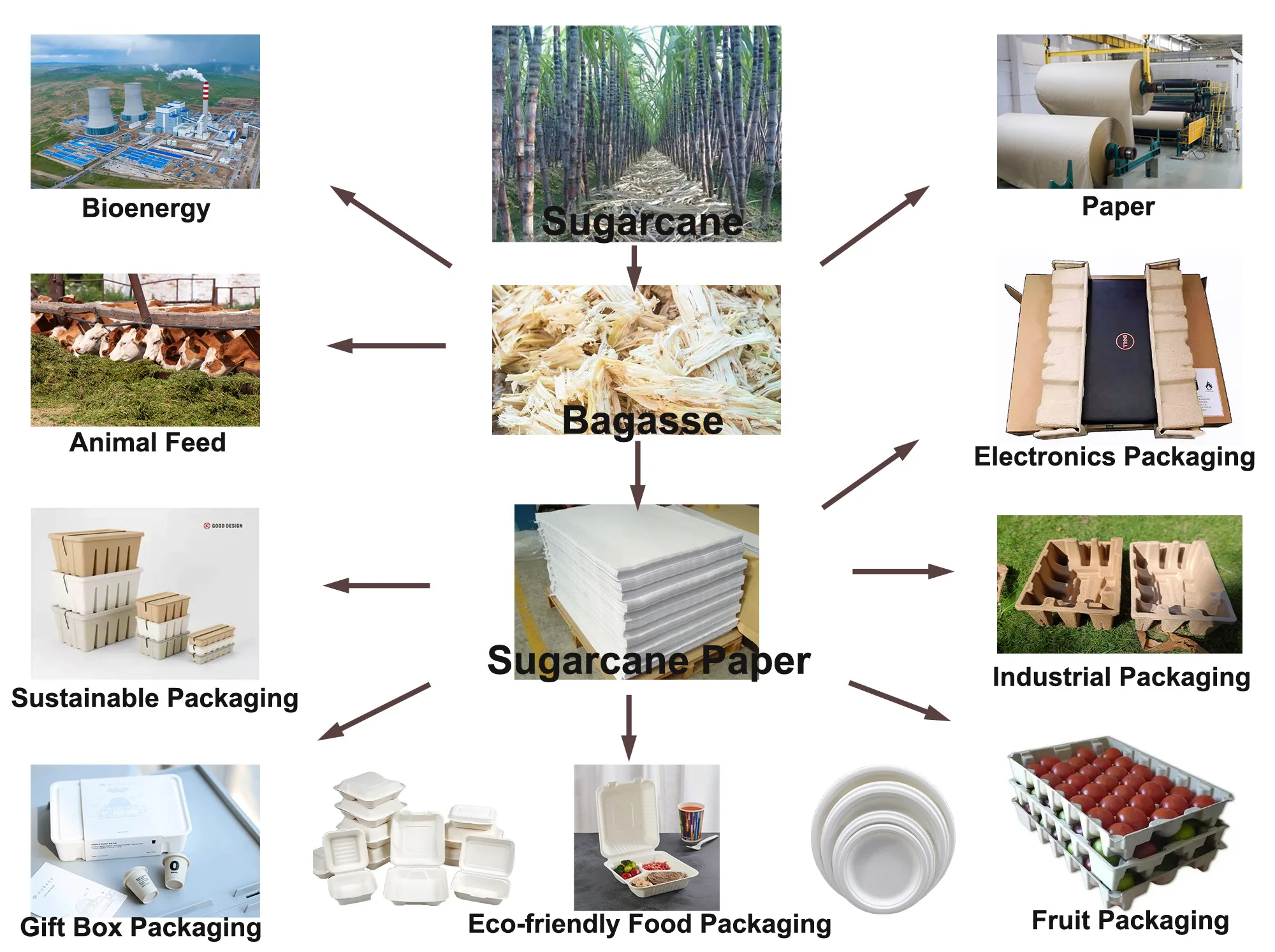Reduce Waste by 70%—Get Biodegradable Bowls at Wholesale Prices
Every year, the food service industry produces millions of tons of packaging waste—most of it non-recyclable plastic. While affordable and convenient, these plastic containers contribute to environmental degradation, landfill overflow, and even pose health risks when used with hot meals.
But what if there was a solution that could reduce your packaging waste by up to 70%, lower your environmental footprint, and still deliver cost-effective performance?
Welcome to the future of food packaging: sugarcane bagasse bowls—a compostable, durable, and sustainable alternative to plastic. With rising demand and improved supply chains, sourcing biodegradable bowls wholesale has never been more affordable or accessible.
Why the Urgency to Switch?
♻️ The Packaging Waste Problem
According to a 2022 OECD report, over 36% of all plastic produced globally is used for packaging, and more than 70% of it is discarded after a single use. Of that, only 9% is actually recycled—the rest ends up in landfills or the environment.
In contrast, biodegradable bowls—especially those made from sugarcane bagasse—can be composted within 60 to 90 days, turning into nutrient-rich soil instead of long-term pollution.
🔬 The Hidden Risk of Plastic Bowls
Studies published in Environmental Science & Technology show that plastic bowls and containers can leach microplastics and endocrine-disrupting chemicals (like BPA and phthalates) when exposed to heat or acidic foods.
For businesses serving hot meals, soups, or oily dishes, these materials pose both health risks and brand liability.
The Rise of Sugarcane Bagasse Bowls
🌿 What Is Bagasse?
Bagasse is the dry fibrous pulp left after sugarcane stalks are crushed for juice extraction. Once considered agricultural waste, bagasse is now a renewable resource used to manufacture compostable tableware.
✅ Advantages of Bagasse Bowls
- 100% plant-based and biodegradable
- Heat-resistant up to 212°F (100°C)
- Naturally grease- and moisture-resistant
- Microwave- and freezer-safe
- Compostable in 60–90 days (industrial composting)
For food businesses, this means you can serve everything from soups to curries in bagasse bowls without leaks, warping, or toxic exposure.
Performance vs. Plastic: How Bagasse Bowls Hold Up
And now, many suppliers offer bagasse bowl with lid options—perfect for takeout, meal prep, and delivery services.
Buying in Bulk: Save Money and the Planet
Thanks to growing demand and economies of scale, biodegradable bowls wholesale pricing has dropped significantly over the past three years. Buying compostable bowl bulk:
- Reduces cost per unit
- Simplifies logistics
- Ensures consistent inventory
- Lowers your waste management fees
More importantly, it sends a message to your customers: your brand cares about the planet.
Where to Buy: Trusted Sources for Compostable Bowls
If you’re ready to transition to eco-friendly packaging, here are some trusted sources for biodegradable bowls wholesale:
- ✅ BioLeaderPack (Xiamen, China) – A highly regarded biodegradable food packaging manufacturer offering a comprehensive line of sugarcane bagasse bowls, including bagasse bowl with lid options. Known for:
- Strict quality control and international certifications (BPI, OK Compost, FDA)
- Custom branding and printing services
- Flexible MOQ options and bulk pricing
- Rapid global shipping for North America, Europe, and Asia
- Alibaba (Verified Suppliers) – Look for BPI and TUV certifications
If you're sourcing compostable bowl bulk, BioLeaderPack stands out as a one-stop solution for foodservice distributors, restaurant chains, and eco-conscious brands.
Top Use Cases for Sugarcane Bagasse Bowls
- Meal delivery companies replacing plastic with compostable packaging
- Cafés and quick-service restaurants offering eco takeout options
- Corporate caterers and event planners going plastic-free
- Eco brands building sustainable image through packaging
Bagasse bowls are not just about reducing waste—they’re about enhancing customer trust.
FAQ
1. Are sugarcane bagasse bowls safe for hot food?
Yes. They withstand up to 100°C (212°F) and are ideal for hot soups, curries, and oily dishes without leaking or deforming.
2. Can bagasse bowls be microwaved or frozen?
Absolutely. They're microwave- and freezer-safe, making them perfect for both reheating and storing.
3. Are bagasse bowl lids also compostable?
Yes. Fiber lids made from bagasse or PLA lids are fully compostable and pair well with various bowl sizes.
4. What certifications should I look for when buying compostable bowls?
Look for BPI (U.S.), TUV Austria, OK Compost, and DIN CERTCO for compostability and safety assurance.
5. What’s the best way to buy biodegradable bowls wholesale?
Sourcing from manufacturers like BioLeaderPack ensures quality control, international compliance, bulk pricing, and customizable branding—making them ideal for large-scale food businesses.
Final Thoughts: Cut Waste, Not Quality
Plastic may still dominate the market—but its time is up. Cheap now doesn’t mean cheap later, especially when factoring in waste disposal costs, regulatory compliance, and environmental damage.
Switching to sugarcane bagasse bowls sourced from trusted biodegradable bowls wholesale suppliers allows your business to stay competitive, responsible, and future-ready. Whether you're looking for bagasse bowl with lid combos for takeout or compostable bowl bulk for meal kits, there’s never been a better time to make the switch.




Comments